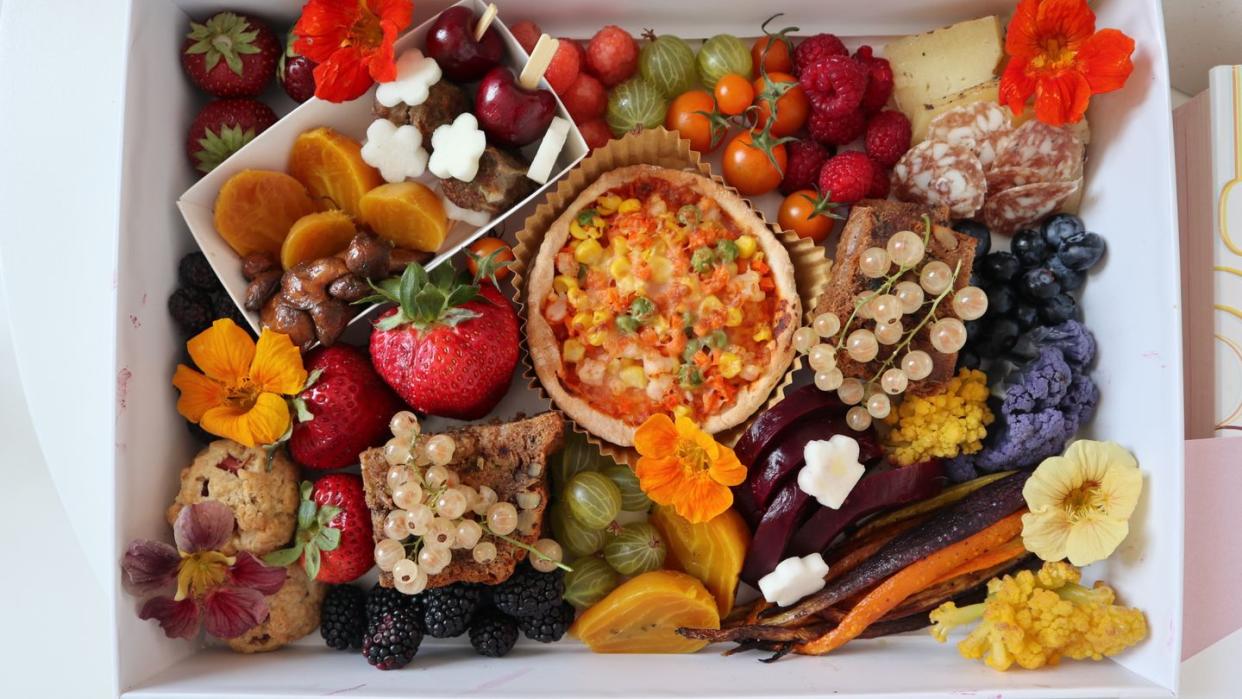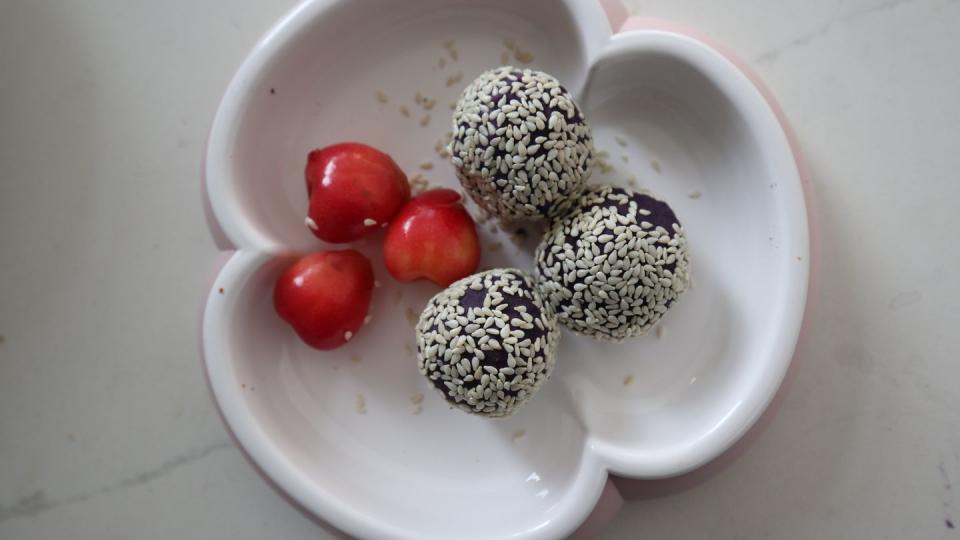A New Meal-Delivery Service Wants American Kids To Eat Way Better

Do you sometimes have not-so-great eating habits? Same here. One of my nicknames growing up was “Sugar Freak Seixas.” I still like sugar—a lot. Probably too much. At least now I know that a pint of Ben & Jerry’s Milk & Cookies should be an occasional indulgence, not a whole dinner.
Fact: Eating patterns are formed in the first few years of one’s life. False: Kids are inevitably going to be hopelessly addicted to sugar all the way through adulthood. I turned to SmartMoms Organics co-founders Alice Liang and Crystal Liu for some more insight on this. Founded in 2021, SmartMoms is a meal-delivery service devoted to establishing a healthy relationship between kids and food. In the meal-delivery space, their dishes stand out amongst other brands'. Think Korean Short Ribs with Polenta, Kiwi Fruit Cup, and Mini Apple Chickpea Muffins. And their packaging is stunning too, as Team Delish saw when Liang and Liu visited our kitchens. I spoke with Liang, who is also SmartMoms' head chef, to find out more about the brand's ambitious mission and how to get kids to eat better.
Robert Seixas: Why did you start SmartMoms?
Alice Liang: We started SmartMoms Organics for a number of reasons. If you look at the market today, it is saturated by purees and too much added sugar. We aim to fill the gap between ages 1-5. We focus on nutrition. Nutrients provide building blocks that play a critical role in the brain’s cognitive development. This is especially important at this age for the development of memory, thinking and learning.
The [meal delivery] market offers limited options for children. Pizza and mac and cheese are broadly accepted as the only items that children want to eat. And that’s fine on occasion. Some of our most popular items are salmon croquettes, eggplant soufflé, oxtail mushroom crepe, and chicken chestnut soup. The children love these dishes. It is just a matter of taste and exposure.

What are your professional backgrounds?
Crystal and I worked together in finance. With our hectic work schedules and sudden business trips, important family time was being taken away, and the little time that was left was used for food preparation.
Kids for the most part (including a big kid like me) like things sweet. How do you get around that?
We don’t. The sweetness comes from whole foods. There is natural sugar in fruit and vegetables. A cup of apples or beets has around 12 grams of sugar. However, the sugar from an apple or beet has a low glycemic load, so it does not cause a sugar rush in the same way as added or artificial sugar.
You also get loads of fiber and the antioxidant benefits of phytochemicals in fruits and vegetables. For example, we use bananas, ube, sweet potatoes, apples, berries, and beets. A great technique is reducing down orange juice and using it as a syrup in our blueberry muffins, or using peach and beets for flavor and moisture in our seasonal muffins.
Tell me about the global nature of your food? What influences around the world are you bringing to the U.S.?
We are global citizens, and food is our universal language. Through exploring global food, we want to expose our children to a variety of ingredients and set our children up to thrive no matter what they are offered on the plate. We offer a diverse product range. Korean Short Rib, Japanese Hamburgers, French Pea Vichyssoise, Veggie Farfalle, and Mini Pizza are some of our most popular items and have a wide range of global influence. We are continually developing our menu and creating new dishes, influenced by our customers (baby croissant was parent inspired), our staff, and our own travel and experiences.

Why is there an assumption that kids only eat a certain type of food?
In most of Asia and Europe, starting from an early age, kids eat a smaller portion of adult food. In restaurants in France, for example, a smaller portion and partial price is given. The daycares also offer similar foods to those in a restaurant or at home.
Here is an example from a typical public daycare menu: olive bread, chicken with peas in an artichoke heart sauce, a soft cheese and seasonal fruit. The school notes, "Mealtime is a particularly important moment in a child’s day. Our responsibility is to provide children with healthy, balanced meals; to develop their sense of taste; to help children, complementing what they learn at home, to make good food choices without being influenced by trends, media, and marketing; and to teach them the relationship between eating habits and health."
In contrast, in a lot of the Western world, children are given a completely different menu than adults. Pizza, grilled cheese, and chicken nuggets are nearly always featured. Most people, when asked, will say that this is due to kids being picky eaters and this type of menu being palatable to most, but it seems that we are leading children in that direction by giving them a separate menu.
Do you think the kids who eat SmartMoms' foods will become more accepting of other cultures and diversity?
When a child eats a wide range of dishes influenced by multiple cultures and heritages, they understand there is a wider diversity than that of their own home culture. Their palate is open and they approach difference with curiosity rather than animosity. Our food therefore becomes an avenue to acceptance of other cultures and open mindedness.
You Might Also Like


